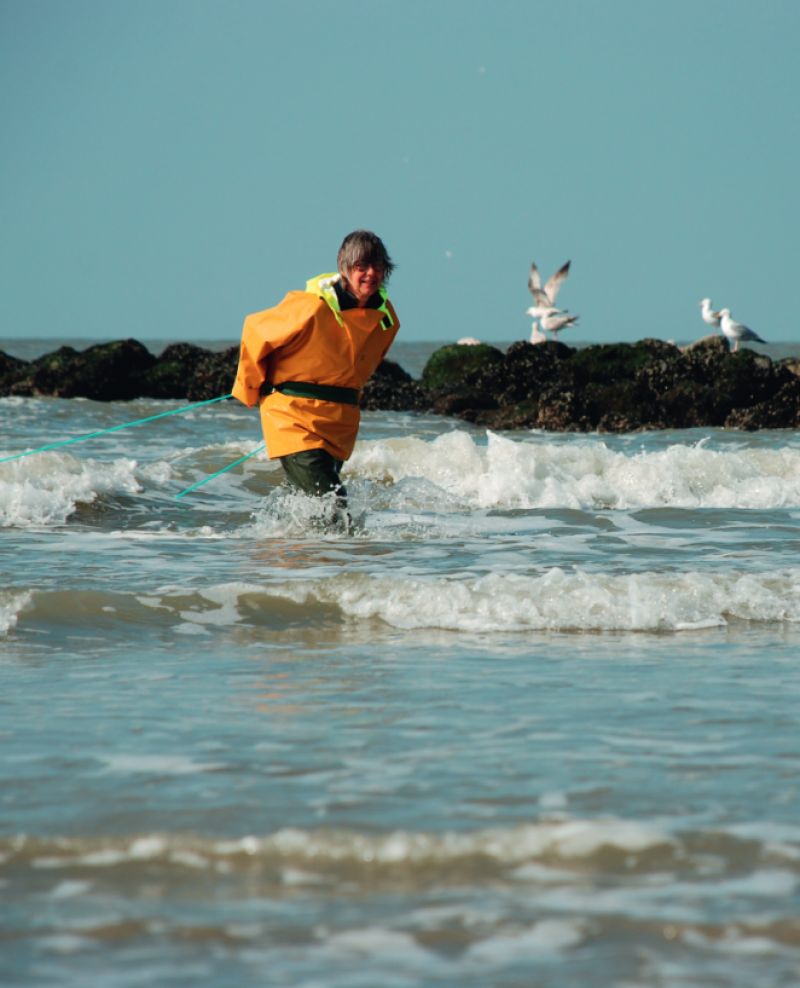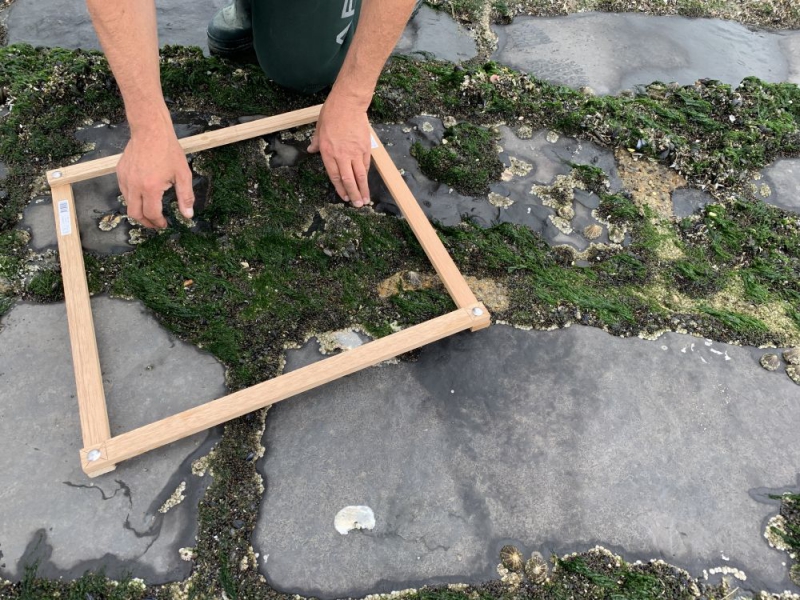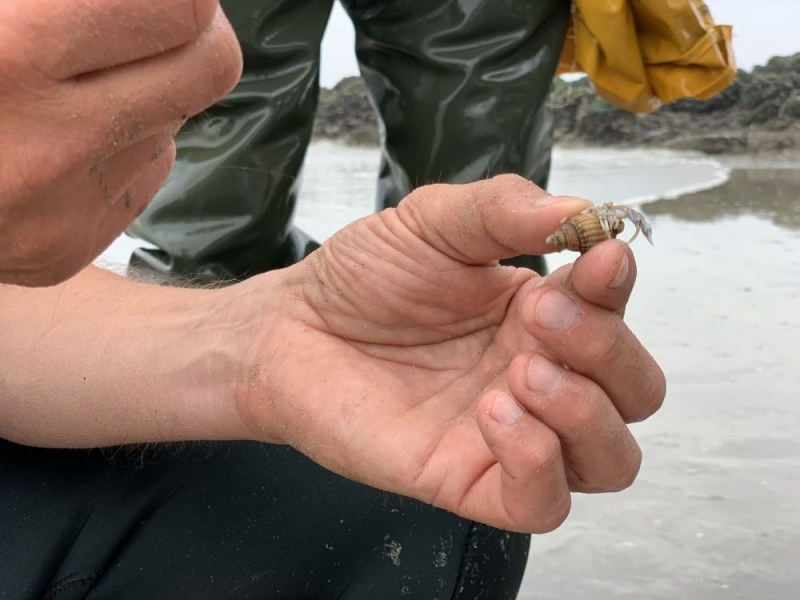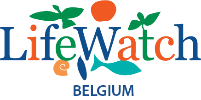You are here
SeaWatch-B citizen science data confirm climate change
The first report "What is the state of the North Sea?" by the LifeWatch citizen science project SeaWatch-B shows that the Belgian North Sea is affected by human activities, more in particular climate change. Cold-water species such as the North Sea shrimp are decreasing in number compared to a similar study 20 years ago, while warm-water fauna such as the poisonous lesser weever, the small hermit crab and exotic species (e.g. American rib jellyfish) are increasing in number.
Keywords: Citizen Science, long-term data

SeaWatch-B
SeaWatch-B is the citizen science project for the Belgian North Sea. Since 2014 the SeaWatch-B beach observation network engages citizen scientists who collect reliable long-term data on the state of the North Sea.
Objectives
During the past half a century, the North Sea has noticeably changed. For instance, it has warmed twice as fast (+1,7°C) as the global average for ocean and seas, reflected in shifts in the food web, the most important being the departure of cold-water species and an increase in animals and plants originating from the Atlantic Ocean or further south. The SeaWatch-B project aims to describe and evaluate the long-term evolution of the North Sea in a consistent manner. This provides science with the necessary data to adequately inform and advise policy. In addition, SeaWatch-B engages citizens and enables them to actively participate in or contribute to a well-studied and sustainably managed sea.

Methodology
A select group of citizens were trained and equipped, and since then have been carrying out a fixed set of measurements, at least seasonally and on a fixed beach stretch. Ten parameters receive special attention: 'overall habitat change', 'people/dogs/horses on the beach', 'limpets on groynes', 'fish, crabs, shrimp from beach waters', 'sea water temperature', 'lugworms', 'beached jellyfish', 'shells', 'marine debris' and 'archaeological finds'. By monitoring this multitude of parameters in a standardised, predetermined way, changes due to natural or human influences can be detected.
Used components of the LifeWatch Infrastructure
SeaWatch-B is a citizen science project, an initiative supported by the Flemish contribution of the European LifeWatch project.

Output
Publications
www.vliz.be/imisdocs/publications/330583.pdf
News
http://www.vliz.be/en/press-release/belgian-citizen-science-survey-confirms-north-sea-climate-change
Contact
Jan Seys
Spokesperson/Department Head Communication VLIZ
E-mail: jan.seys@vliz.be
Tel.: +32-(0)59-34 21 40
